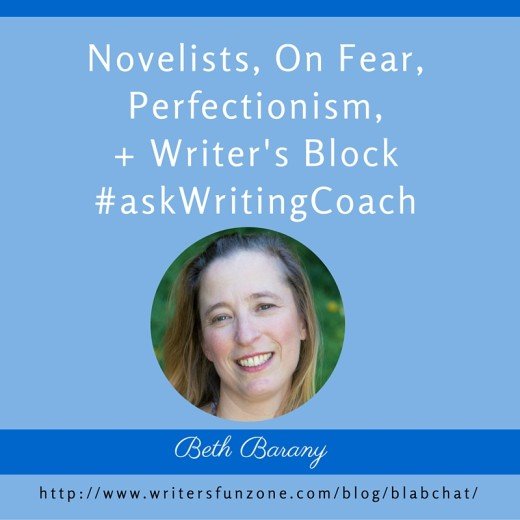Top 10 Things Authors Need to Know About Contracts
Welcome to the weekly series on artist entrepreneurship. Today we focus on writers specifically and on an important tool for your empowerment — contract law — from a new monthly guest columnist, Kelley Way, a lawyer specializing in literary law. If you have general questions for Kelley on contracts or other aspects of literary law, be sure to comment below. Look for her post next month on fair use. Thanks!
And now for a bit of necessary legalese: Please note that this article does not constitute legal advice, and that an attorney-client relationship is not formed by reading the article or by commenting thereon.
^*^
The day has finally dawned! After all your hard work and endless rounds of submissions, you have a publisher that wants to publish your book. But when the publisher hands you the contract, should you just sign on the dotted line, or should you look it over first? If you did look it over, what would you be looking for?
Here’s the top 10 things to know when you’re handed a contract, that publishers might wish you didn’t:
1. Know what the publisher is promising. There are publishers who will put your book in print, but they will do it on your dime, with no editing and little to no marketing. If you’re fine with that, there’s no problem, but know going in what you’re getting out of this agreement.
2. Know what rights you are granting to the publisher. Publishers do not need to own the copyright in your work in order to publish your book; all they really need is a license giving them permission to copy and distribute the work. Granting other rights, such as the right to make minor changes and use your name and face when marketing, is also a good idea. Just make sure you’re comfortable with what you’re giving them.
3. Know and understand the entire contract. Publishing contracts can be long, and they’re certainly boring, but you don’t want to find out you promised something you’re now regretting. If reading all the way through is just too painful, there are people out there who can read it for you. Agents and lawyers get a perverse pleasure out of reading and translating such things, so don’t hesitate to ask them.
4. If it’s not in the contract, it’s not part of the agreement. Sure, there are some things that are just givens. But that’s the exception; the rule is that if something is not in the contract, even if you talked about it before signing, it doesn’t exist. If there’s a particular thing you want from the publisher, make sure it’s in the contract.
5. All of the contract terms should be clear and specific. One of the big reasons contracts are so boring is because they often turn redundancy into an art form. Lawyers do this because they want to make absolutely sure there’s no confusion about what is being agreed to. Admittedly, it can be taken to the extreme, but it should at least be clear enough that a random passerby would understand what was being promised.
6. Contracts are negotiable! Don’t come to the table thinking that the contract is a take-it-or-leave-it deal. Some publishers may be hard nosed about it, but most are open to some bargaining.
7. When negotiating, author payments are the biggest points of contention. Seems a little obvious, right? After all, you wouldn’t publish your book if you weren’t hoping to make a profit on it. The publisher knows that, too, so he’ll use it as a bargaining chip to get other concessions from you.
8. Know what happens if the agreement is terminated. No one likes to think about a deal going south, but unfortunately it happens all the time, which is why contracts always cover what will happen in case it does. A good contract will specify when a party is allowed to back out, and what happens to the book and the advance or unpaid royalties (depending on where the parties are in the process). The biggest thing to watch for is that you get all your rights back if the contract is terminated.
9. Know the forum and venue for a dispute. Most contracts these days have a clause saying that if there’s a disagreement between the parties, they’ll settle it in arbitration rather than in court. In either case, the contract will usually say where the trial or arbitration will take place. Make sure that the location is one you’d be willing and able to travel to, if matters go that far.
10. Know who’s liable for what, and who’s paying for the lawsuit. Publishing contracts always have an indemnity clause, where the author swears the work is his own and there’s nothing in it that a person could reasonably sue him for. If the publisher is sued based on the contents of the book, the author promises to take full responsibility and reimburse the publisher. How much the author pays, and what he pays for, is somewhat negotiable.
*^*
Kelley Way was born and raised in Walnut Creek, California. She graduated from UC Davis with a B.A. in English, followed by a Juris Doctorate. Kelley is a member of the California Bar, and hopes to one day be in a position to take her own advice on publishing contracts in her other life as a writer of YA fantasy novels. Kelley Way can be contacted at KelleyAWay@gmail.com.








This is very good information. It’s important for new authors to realize that there is no such thing as a “standard” publishing agreement. While various (larger) publishers may have a basic contract form that they regularly use at the beginning of negotiations, there is nothing “set in stone” about such a contract.
Another thought to add: an author must consider how the contract will end and at what point will publication rights revert to the author… In the past, contracts would end when a book was “out of print.” But in this era of digital printing, it’s very easy for a book to stay “in print” almost forever. But the author might be better off to retrieve the rights so that another publisher (or as a self-publisher) the book might be more aggressively promoted.
Therefore, the author should seek a right to end the contract and retrieve publication rights when sales reach a particular (as negotiated) volume — e.g. publication rights will revert to the author when average monthly sales fall below 10 copies per month for a period of 3 months — This is the only way to give the author some means to bring a contract to an end so a book can be given new life with a new marketing effort.
An excellent point, Pete, thanks for mentioning it.